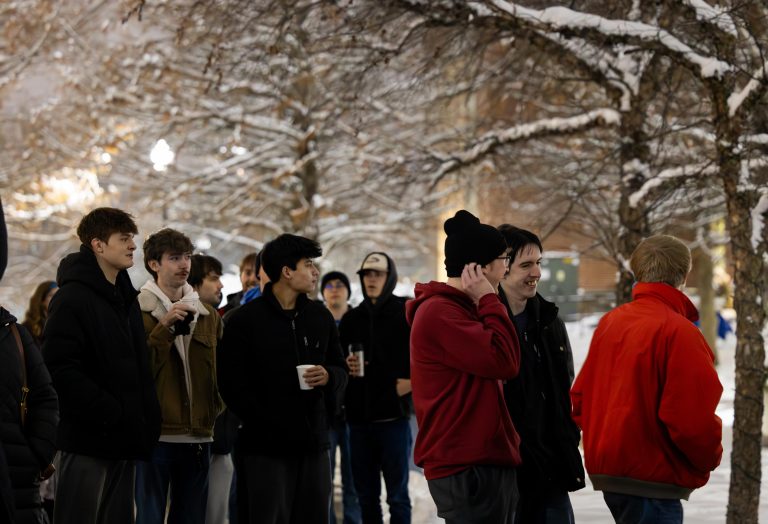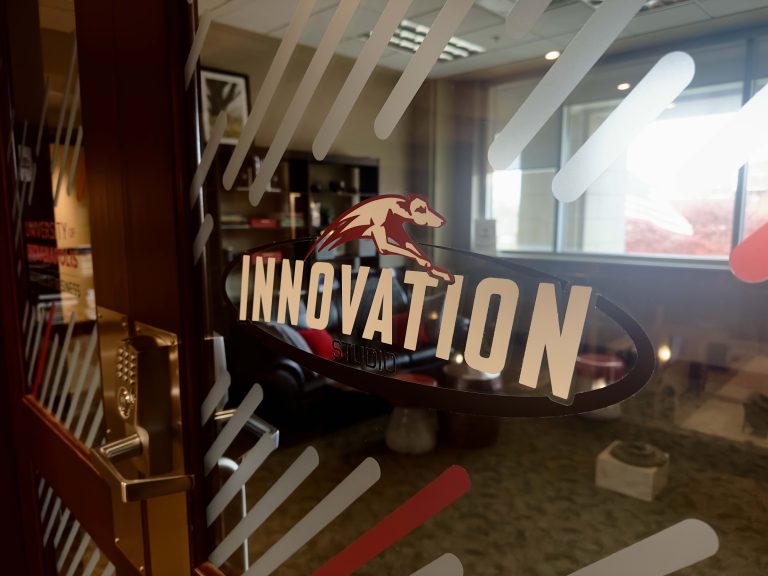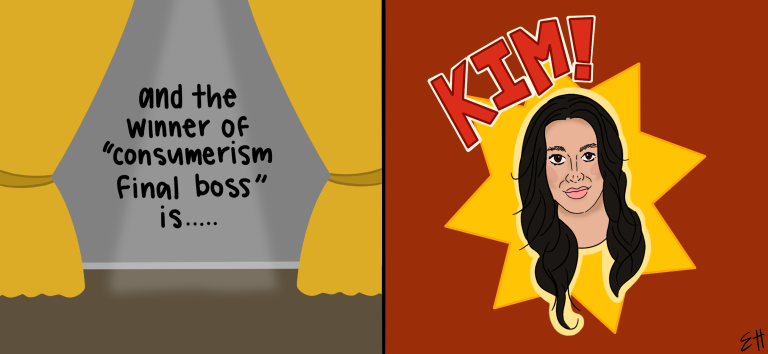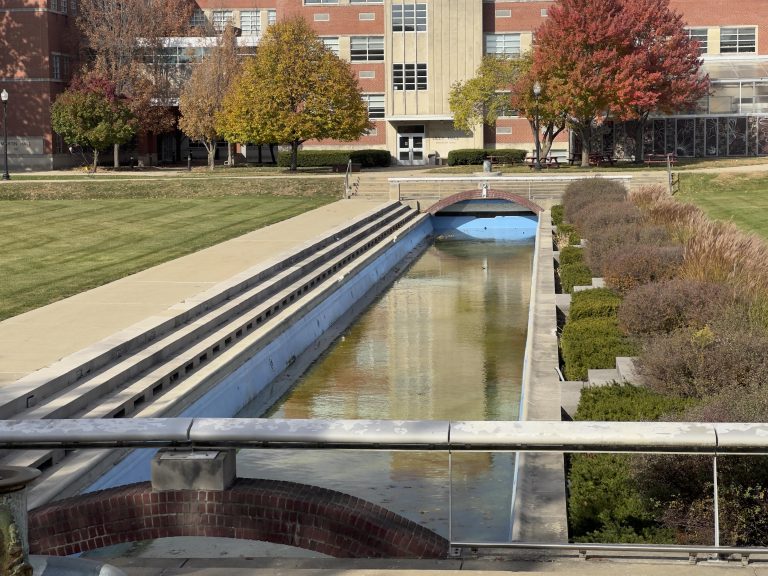The University of Indianapolis hosted a lecture regarding the upcoming solar eclipse titled “Eclipses: Awe and Wonder Across Cultures,” on Feb. 7. The lecture featured a number of speakers across the Religion, History and Physics departments.
Assistant Professor of Physics & Earth-Space Science Sarah Reynolds created the event and invited the other speakers: Assistant Professor of Practice Philosophy & Religion James Willis, and Professor of History James Fuller. Reynolds said she thought it would be interesting to bring someone in from a Religion studies background as historically, a lot of people have turned to religion to understand or explain celestial events.
“Eclipses aren’t something that is just about science, right?” Reynolds said. “They impact people in so many different ways, they have historically impacted culture, and [impact] society in a wide variety of ways, [so] I think that means that there’s really so many different areas of study that you can look at eclipses through.”
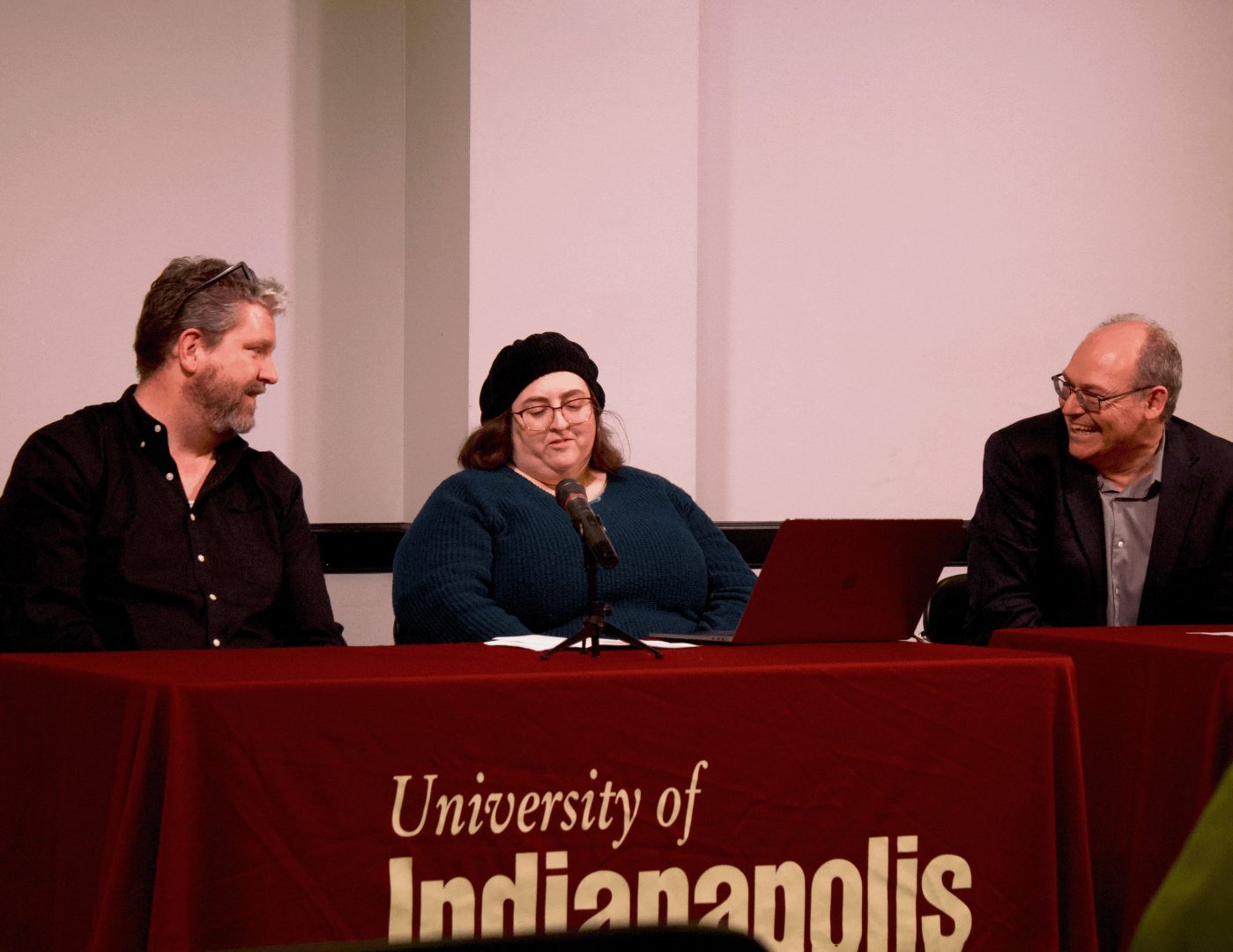
According to Willis, people of ancient civilizations used religion and mythology as a way to make sense of cosmic events in a world without science. Willis said more people need to take a charitable view of ancient religions because they did not have access to the kind of data and knowledge that we do now.
“Mythologies about solar eclipses are instructive and even entertaining, but they also demonstrate how people cope with their anxieties of these cosmic events that align with our prior stories,” Willis said.
According to Reynolds, astronomy has a rich and complex history across the centuries. Reynolds said there are records stretching back to the earliest periods of human history which feature the sun and moon prominently in their cosmology.
“But across all of that … we find there are some common features that science tends to have across cultures across times, even back in periods that we don’t usually think of as scientific,” Reynolds said. “Astronomy is one of the oldest subjects that we know has been studied in a fairly scientific fashion. So much of what people do in terms of travel and navigation, and calendar, timekeeping, all of those things, [depended upon] understanding the motions that we see up in the heavens and the sky.”
According to Willis, students can enjoy the solar eclipse in modern times because society can understand scientifically what is going on. However, Willis said that society should cultivate intellectual humility, because what we believe as true today may be viewed differently in the future.
“The things that we take for granted as being pure facts, will at some point in the future be seen the same way that we view people hundreds of thousands of years ago,” Willis said. “When you go outside in April and you look at the sky… think about it from a scientific viewpoint. How amazing is this? How amazing to be alive at this time.”
According to Reynolds, if there are any students curious about the eclipse or astronomy in general, there are opportunities to learn more about the topic through local interest groups such as the Indiana Astronomical Society. Reynolds also teaches a 200 level class in the fall on astronomy.
“Here on campus, we’re starting to have a lot of students that are interested in astronomy and astronomy topics. So we usually have fun with it in the classes in the fall, and then we’re trying to create more opportunities for it,” Reynolds said.
The Noblitt Observatory is also on campus, and is located in Lilly Science Hall. Reynolds said that she is hoping the observatory will be able to open a few times each semester, to afford students the opportunity to engage in presentations and classes while observing the stars.
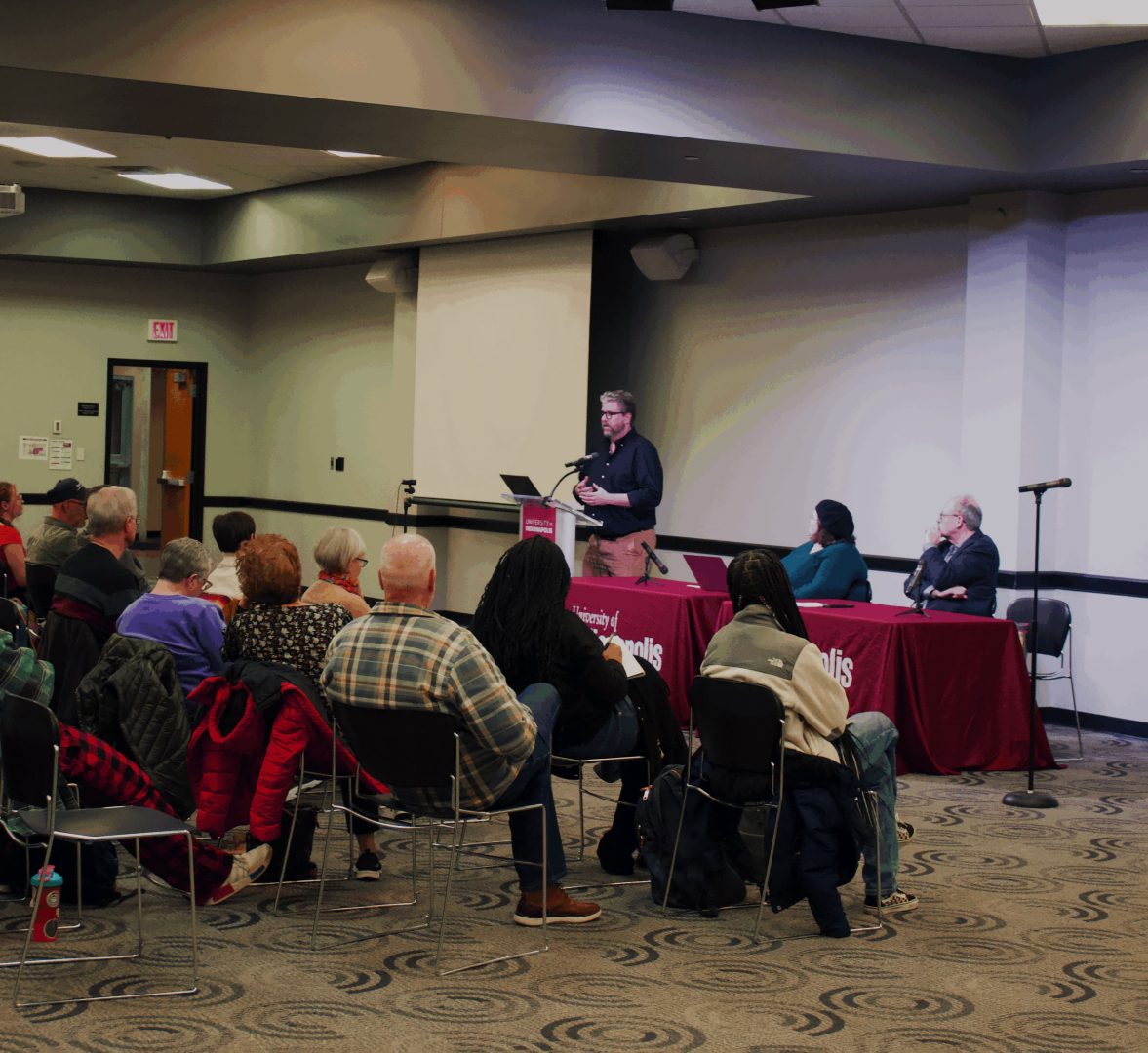
Reynolds and a few of her students have set up an email account for anyone to contact if they have general questions about the upcoming eclipse, which is eclipse@uindy.edu. Reynolds encourages students to reach out and engage, even if they believe the sciences are not for them.
“We really kind of hope that the eclipse is something everyone can be involved in as well,” Reynolds said. “So we’re going to have, you know, the event on campus, we’re going to have some things kind of leading up to it. We’d love to hear from students if they have ideas or questions or they want to do some part of that.”


